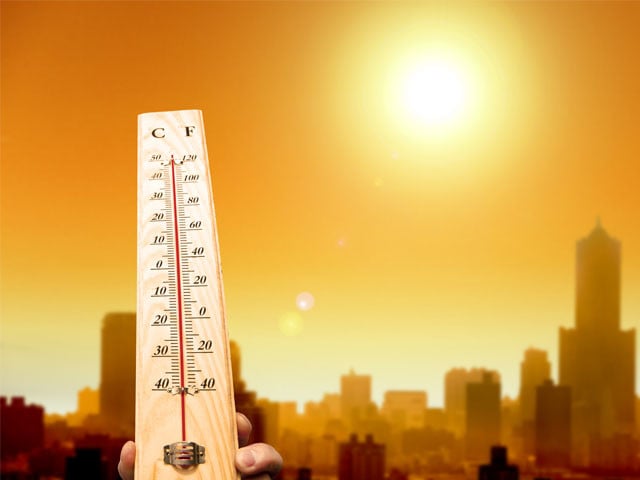Islamabad Weather: Heatwave Brings Temperatures Soaring
The heatwave is expected to continue over the next 72 hours, with temperatures remaining above 40°C in many cities. Citizens are advised to stay indoors, avoid direct sunlight, and drink plenty of fluids to stay safe and healthy. The government's efforts to respond to the heat wave crisis are ongoing, with a focus on providing water and other essential services to affected areas.

A severe heatwave has gripped the country, with temperatures 5-7°C above normal in central and upper Punjab, Islamabad, Khyber-Pakhtunkhwa, Kashmir, and Gilgit-Baltistan, prompting the PMD to issue a warning and forecast continued extreme heat over the next 72 hours.
The highest temperature recorded was 48°C in Dadu, with other hot locations including Rahim Yar Khan, Jacobabad, and Mohenjo-daro. Cities in Sindh, including Karachi, are expected to remain hot, with temperatures above 40°C. Health officials have issued advisories urging citizens to stay indoors, avoid direct sunlight, and drink plenty of fluids to avoid heat-related health risks. Emergency services are on high alert, and Punjab Chief Minister Maryam Nawaz has instructed Water and Sanitation (WASA) Punjab to mobilize its teams to address the heat wave impacting various cities.
A meeting was chaired by WASA Punjab DG Tayyab Farid, attended by Managing Directors of WASA Lahore, Rawalpindi, Gujranwala, Multan, and Faisalabad, to ensure a prompt and effective response to the heat wave crisis. Key actions emphasized during the meeting include checking water supply systems, adjusting working hours for tube wells, and deploying water bowsers and mobile teams to areas in need of water. The meeting aimed to ensure a prompt and effective response to the heat wave crisis and committed to fully comply with the Chief Minister's instructions.
Climate change is causing intense heat waves in Pakistan, making it difficult for people to carry out daily activities. The heat can have devastating impacts on children and the elderly, leading to dehydration, dizziness, and heatstroke. To combat the heat, people should stay indoors between noon and early evening, wear light and loose clothing, and use sunscreen. Keeping hydrated is also crucial, and people should drink plenty of water and try hydrating drinks like lemonade and smoothies.
As the heatwave continues to grip the country, it is essential for citizens to take necessary precautions to stay safe and healthy. By following the advisories issued by health officials and taking steps to stay cool and hydrated, people can reduce their risk of heat-related health risks. The government's efforts to mobilize resources and respond to the heat wave crisis are also crucial in mitigating the impact of the heatwave.